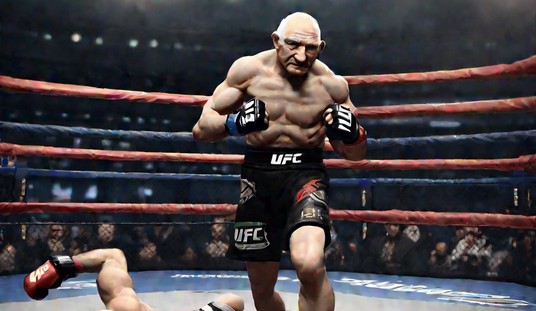Is it possible to thwart evil, when evil is rich, beautiful and clever? Western writers asked that question in the form of nearly two thousand variants of the “Don Juan” story, of which one – Wolfgang Mozart’s opera Don Giovanni – holds modern audiences spellbound; it premiered in October 1787.
Mozart’s masterpiece is a self-referential sort of problem, a foundational work of Western civilization whose subject is the inadequacy of Western civilization. It may seem a distraction to dwell on details of performance practice that speak to a minority within a minority of music listeners. But our capacity to perform and hear Mozart’s opera as he intended it really is matter of existential importance for the West, and not only the West; if the small matter of containing talent and evil personalities seems remote, read the last month’s news from Beijing.
Don Juan, by the time we encounter him in Mozart’s version, has seduced more than 2,000 women and killed considerable numbers of their male relatives. The other personages in the opera, who represent all the estates of civil society, are powerless to stop him; he can outfight, or outwit, or (in the case of the women) seduce them. Finally the statue of one of his victims stops by for dinner and drags him to hell, which hardly is a solution. The remaining characters, noble, bourgeois and peasant, are as stupid and feckless as they were before.
[SNIP]
Don Juan exists to prove by construction that a devout Christian can be a sociopath, and by extension, that the Christian world can be ruled by sociopaths. The Enlightenment’s most insidious attack on Catholic faith, then, came not from atheists like Voltaire, but from a Spanish monk with buried Jewish sensibilities.
A century and a half later, another converted Jew – Emmanuele Conegliano, known as Lorenzo da Ponte – reworked Tirso’s play as a libretto for Wolfgang Amadeus Mozart, and the result was an utterly unique work of art. It is pointless to argue about whether Don Giovanni is the best opera ever written, because it is a genre unto itself – the musical tragi-comedy, or “drama giocoso“, as Da Ponte put it. Mozart’s combination of tragic and comic elements turns the world inside out. From the first bars of the orchestra to the final note, we are unsure whether we should laugh, cry, or feel fear. If you don’t leave the theater confused, you haven’t been listening. [4]
We typically are entreated to regard Western civilization as a marble monument which we should contemplate in reverence. There are any number of marble monuments, to be sure, which one should contemplate in reverence, and some marvelous literature which presents the world in the orderly fashion – the Paradiso section of Dante’s Divine Comedy, for example, which manages to combine the highest sublimity of language with the utmost tediousness of content.
But the definitive works of Western civilization are the self-referential ones, which expose the flaws in the underlying structure, starting with plays of Sophocles written after Athens’ catastrophic defeat in the Peloponnesian War. Mozart does not ask you to sit back and contemplate Beauty: he pokes and pinches and tugs and teases, until he drags you into the midst of the comedy. It is a comedy, in that all of his characters deserve what they get; the tragedy is ours.
The trouble with Don Giovanni is that Mozart’s librettist, the witty Lorenzo da Ponte, bungled important elements of the original Don Juan story, following the example of other 18th century Italian versions. Giovanni murders the father of one of his (prospective) rape victims, Donna Anna.
At the opera’s conclusion the father’s statue demands that Giovanni repent, and Giovanni refuses in a last expression of churlishness. Rather than the orthodox but sociopathic Catholic of Tirso de Molina, da Ponte gives us an Enlightenment villain who refuses to bow to divine will out of sheer spite. Tirso’s Don Juan would have taken the statue’s deal in a heartbeat, since he is a believing Catholic. The theological paradox at the center of the comedy is obscured (if we can save ourselves by free will, then we can postpone our salvation by free will and continue to do unspeakably evil things in the meantime).
In Tirso’s original, what motivates Don Juan is not so much sex but evil. He enjoys killing the men as much as enjoys raping the women, and he gets as much pleasure by cheating prostitutes of their pay as he does by sleeping with them. Da Ponte too often reduces Tirso’s theologically-informed lampoon to the clowning of the Venetian commedia dell’arte, the stylized buffoonery of stock characters.
What Da Ponte confuses, though, Mozart clarifies in a musical score that illumines his characters more vividly than words can. The devil in Mozart lies in the details, though, and the effect of the whole depends on control of countless nuances. He is like a god – not the God, of course, but a god.
There are no minor characters in his work, because any person whom Mozart chooses to characterize is endowed with an entire world of musical detail. Thanks to Mozart we relive the travails of his dramatic personages more intensively. Tirso’s theological joke, in Mozart’s hands, takes shape in our senses and becomes experiential as well as intellectual.
Mozart allows us to relive our past, to get inside the lives of the people who made the West what it was, and, too often, what it should not have been. When the young singers of the Mannes Opera threw themselves into their roles, we were back in the Prague of 1787, hearing Mozart’s world through Mozart’s ears.
There is nothing reassuring about it: Mozart was a ruthless critic of his world, but masterful at bringing out the beauty even in the silliest and nastiest of situations. We shall never make sense of where we are without looking back at where we came from, and we rely on institutions like Mannes to maintain a fragile, living link to the past. Apart from the fact that the music-making was delightful, it is also indispensable.
The Problem of Evil and the Indispensable Mozart

Why is high culture important to us? It is not a matter of refinement, although the collateral benefits of learning classical music or languages is indisputable. 36 million Chinese piano students can’t be wrong, I argued in a post last week entitled “Philistinism and Failure.” In today’s Spengler column at Asia Times Online, entitled “Beautiful Evil: Mozart’s Don Giovanni at the Mannes Opera,” I suggest another reason why certain aspects of our high culture remain indispensable, if difficult to access: they provide a living link to a past that we ignore to our great detriment. Some excerpts from the essay:
Advertisement
Advertisement








Join the conversation as a VIP Member